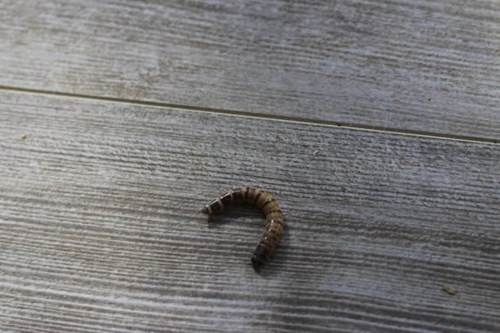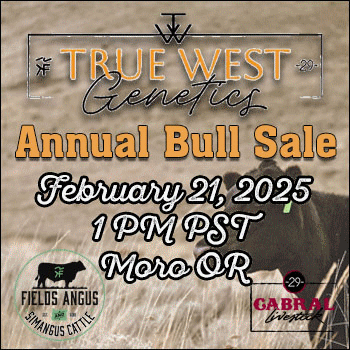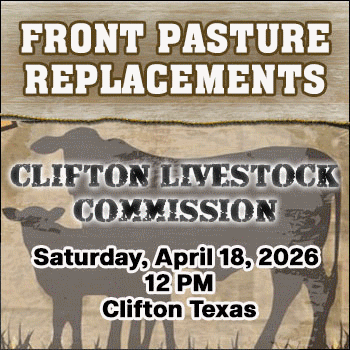Reuters' Tom Polansek and Leah Douglas reported that "the patient with the first human infestation of travel-associated New World screwworm in the United States has recovered from the flesh-eating parasite, and there was no sign of transmission to other people or animals, the Maryland Department of Health said on Monday."
"The Centers for Disease Control and Prevention confirmed the human case as screwworm on August 4 in a person who returned from travel to El Salvador, according to the U.S. Department of Health and Human Services," Polansek and Douglas reported. "The agency announced the case on Sunday after Reuters reported earlier in the day on emails from beef industry officials on a CDC-confirmed case in a person in Maryland who had traveled to the United States from Guatemala."
"The nearly three-week delay between the confirmation of the case on August 4 and the U.S. government's disclosure erodes trust that public agencies need to identify and fight potential screwworm outbreaks, said Neal Wilkins, CEO of conservation and cattle group East Foundation," Douglas and Polansek reported. "'It will cause many producers and land owners, wildlife managers, to simply begin to believe that they're not being fed the whole story,' he said. 'It's irresponsible and tone deaf for them to have done this.'
Progressive Farmer's Jennifer Carrico reported that "Bill Bullard, R-CALF USA CEO, is not only concerned about the NWS human case, but also about the sharing of information regarding the case. Though the case was confirmed by the CDC on Aug. 4, no information was released to the public until Reuters news agency reported on it over the weekend."
"'We are deeply concerned that if the publicly disseminated Reuters report is accurate, including its implication that only select industry participants were timely informed of the detection of this devastating pest in the United States, then our governmental system is fundamentally broken,' he said in a news release," according to Carrico's reporting. "'Independent U.S. livestock producers rely exclusively on the USDA to protect the health and safety of their livestock herds against the introduction of foreign pests and to protect the integrity of their U.S. livestock markets by preventing manipulation.'"
"Bullard further stated that the information about the NWS human case should be shared transparently with all industry participants, including producers," Carrico reported.
Reporting Discrepancy Remains Unaddressed by Officials
Polansek and Douglas reported that "USDA Secretary Brooke Rollins did not mention the human case when she traveled to Texas on August 15 to announce that the agency would spend up to $750 million to build a Texas facility to produce sterile flies to combat screwworm. The agency has not confirmed cases in animals this year. The USDA has not responded to questions about the human case and what communications the agency had with the CDC."
"Last week, an executive of industry group Beef Alliance sent emails to about two dozen people, informing them the CDC had confirmed a case in Maryland in a person who had traveled to the U.S. from Guatemala, according to a source," Polansek and Douglas reported. "Beef Alliance has not responded to requests for comment."
What is the New World Screwworm?
Bloomberg's Jason Gale reported that "New World screwworms (Cochliomyia hominivorax) are parasitic flies that lay eggs in the wounds of warm-blooded animals. The larvae burrow into living tissue -- like a screw twisting into wood -- causing severe damage and, if untreated, death. Most infestations strike cattle, wildlife and pets, but humans can occasionally be affected. Treatment involves removing the larvae and disinfecting the wound. Caught early, it's usually successful, though extracting hundreds of maggots can be arduous."
"For the general public, the risk of infection in the US is very low," Gale reported. "...The bigger concern is for cattle and other animals, where screwworm can spread rapidly and kill even fully grown livestock in as little as 10 days if untreated, according to the UN Food and Agriculture Organization. After a case was detected 370 miles south of the US-Mexico border in July, the US closed southern ports of entry to livestock. Earlier detections less than 700 miles from the border had already triggered restrictions on Mexican cattle, bison and horses in May. Even a single confirmed case in a person is enough to rattle the industry, given the parasite's destructive history."
Source: Ryan Hanrahan, University of Illinois
Articles on The Cattle Range are published because of interesting content but don't necessarily reflect the views of The Cattle Range.













